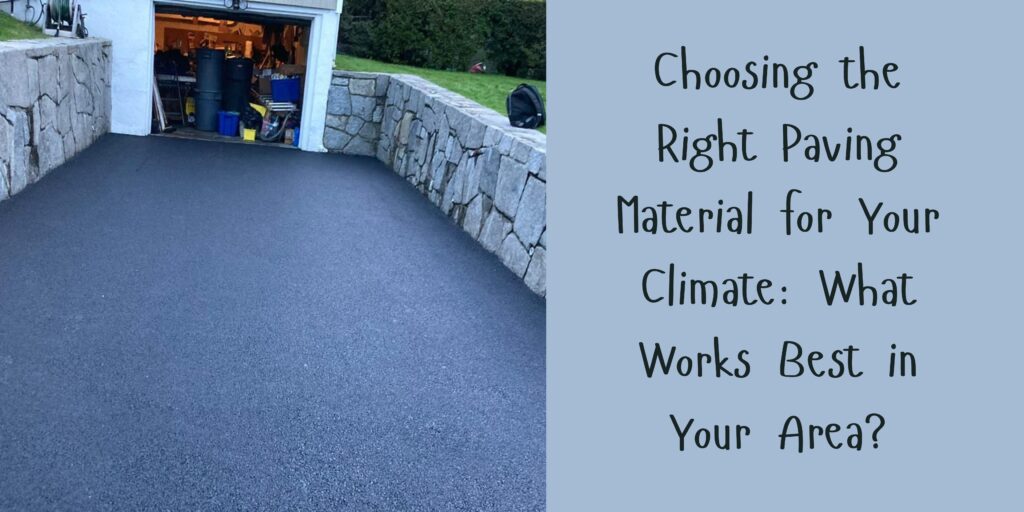When planning to pave your driveway, the type of material you choose plays a huge role in its durability and look. But more importantly, you’ll want to consider how different materials perform in various climates. Some materials hold up better in freezing winters, while others thrive in hotter regions. So, before you call driveway paving services in New Jersey, it’s worth understanding which paving material suits your specific climate.
Asphalt: Great for Cold Winters
If you live in areas with harsh winters, like New Jersey, asphalt can be a top choice. Asphalt is known for its flexibility, which means it can expand and contract with temperature changes without cracking as easily as other materials. It’s especially resistant to damage from freezing and thawing cycles.
However, asphalt can soften in extreme heat, so it may not be the best option for those in hot, dry climates. Regular maintenance, like sealing the surface every few years, helps extend its lifespan.
Concrete: Strong But Susceptible to Cracks
Concrete is another common choice for driveways and walkways. It performs well in both hot and mild climates, but it can struggle in areas with cold winters. Water can seep into small cracks, and when it freezes, it expands, causing the concrete to break down over time.
If you’re in a region with a lot of snowfall, like New Jersey, concrete might need more frequent repairs due to the freeze-thaw cycle. Still, it’s durable and offers a clean, polished look that many homeowners love.
Pavers: Versatile and Weather-Resistant
Paving stones are one of the most versatile materials available. Whether you live in a hot, dry desert or a cold, wet region, pavers hold up remarkably well. Their main advantage is flexibility – since they’re individual pieces, they can shift slightly without cracking when the ground moves due to frost heaving or heat expansion.
They also offer excellent drainage, which is helpful in areas with heavy rainfall. However, installation can be costly, and you’ll need to maintain the spaces between the stones to prevent weeds from sprouting.
Gravel: Perfect for Wet Climates
Gravel works wonders in regions that see a lot of rain. It provides excellent drainage, reducing the risk of flooding or puddles on your driveway. It’s also affordable and relatively easy to install. In warmer climates, gravel helps reflect heat, keeping your driveway cooler.
That said, gravel isn’t the best choice for snowy regions. Snow removal is tricky with gravel driveways, and it may require regular raking to keep the surface even.
Brick: Beautiful and Durable, But Needs Maintenance
Brick paving offers a classic and elegant look that works well in both cold and warm climates. Like pavers, bricks allow for flexibility, making them a good choice in areas that experience temperature shifts. They’re durable and can last for decades if maintained properly.
However, brick can become slippery when wet, so it’s essential to ensure proper drainage. It may also need occasional upkeep, as mortar between the bricks can deteriorate over time.
Consider Your Local Climate
When choosing the best paving material, think about your location and the weather conditions you experience throughout the year. For homeowners in New Jersey, where winters are cold and snowy, asphalt and pavers might offer the best balance of durability and maintenance.
Driveway paving services in New Jersey can guide you through the options, but knowing the strengths and weaknesses of each material will help you make a more informed choice.
In short, your driveway’s longevity depends not just on its material but also on how well it suits your climate. So, take the time to weigh your options and pick what’s best for your home!
